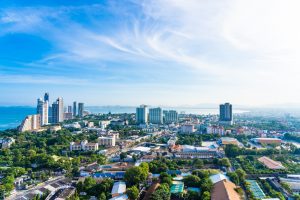As any developing country in the world, we often come across this.

“Oh okay,” you would say. That is the danger right there. Okay.
What is okay with you? The fact that it is the only rubbish that you see within this photo, or the fact that you’re not the one throwing it away? Surely you must have thought, “At least I did my part,” right?
Yes and no.
Currently waste management has given rise to many issues, such as health and safety and improper management of waste disposal sites (Ministry of Housing and Local Government Malaysia, 2005).
These shall result in management failure of solid waste leads which results in increased operation cost and damaging the environment (Agamuthu, 2001; United Nations Development Programme Malaysia, 2008; Weitz, Thorneloe, Nishtala, Yarkosky, & Zannes, 2002).
The absence of cooperation from Malaysia as a country in keeping the environment clean makes it even harder to improve the betterment of the environment.
Until the late 1960’s, city streets were managed by the local health district and the Local Government Act 1976 along with the Street, Drainage and Building Act of 1974 were passed for public cleansing services and sanitary disposal.
Unfortunately, Malaysian laws were too general due to the lack of resources and municipal budget constraints. As of 2000, the budget for waste collection ranged from 20% to 70% according to the size of the municipality (Hassan et al., 2000).
Dumping of wastes in rivers and open rivers are common practices even until today. Studies of waste disposal behavior in Kuala Lumpur indicate that 31.9% of waste were disposed of by open burning, while 6.5% were dumped into the river system.
Hence, the number of times that water disruption in 2020 has happened.
Ironically, this environmental safety concern in Malaysia is considered secondary and most municipalities had a tough time in finding new disposal sites, the existing disposal sites were nearly exhausted (Hassan et al., 2000).
Managing solid waste in Malaysia is still a big challenge, due to our constant dependence on landfills and our population density. Sadly, waste management practices are less practiced compared to the grand gestures of innovative solutions and improvements to inadequacy and inefficiency services provided.
Although various actions were made such as the Action Plan for a Beautiful and Clean Malaysia (ABC) documentary in 1988 and the Solid Waste and Public Cleansing Management Corporation (SWMPC) Act in 2007, the standards of waste management in Malaysia are still poor.

Despite the big campaigns and the outdated PSA’s on television, one movement is still far out from the suggestion of prevention; “zero waste lifestyle”. This concept of an entirely waste-free lifestyle will take some time to get used to.
As the name suggests, it is a movement to reduce the amount of trash consumption. Not to worry, adopting a zero waste lifestyle is affordable. Not only will you save the environment, you’ll also be able to save up financially as well.
One of the most obvious things to combat is “fast fashion” where fashion trends are duplicated and sold less compared to the original. That means rapid production from the use of inexpensive materials and exploiting workers.
In the UK, a study showed that women only wore these clothes a maximum of 7 times. What’s even worse, 20% of all clothing made by fast fashion brands are never actually purchased, so they are immediately sent to the landfill or to be burned.
Globally, an estimated 92 million tons of textile waste were created annually from the fashion industry equivalent to one garbage truck of textiles to be burnt per second. Let that sink into your brain.
However hard it might look, it is not. Take it slow. Rome was not built in a single day. (Pun-intended)

6 Steps to Start a Zero Waste Life
1. Say no to plastic. That’s that. Say NO to disposables.
2. New ‘Raya’ clothes. In a country that prides itself on multiculturalism, it is hard. However, it is not hard to say no. Share your clothes with a friend, or sell it somewhere for extra money.
3. Avoid plastic grocery bags. Yep, one costs RM 0.20. Imagine if you do that 500 times.
4. Set up a compost bin – This is good for your plants.
5. Recycle as much as you can. Still remember your 3R’s, don’t you?
6. Repair what you can – Learn and mend are both cost-free!
Spending more on a single item takes a lot of work depending on the necessity and the worth of the clothing article for you.
If you’re scratching your head to figure out where to start in your search for zero waste and eco-friendly products, don’t you worry. Good news for you, there are actually a lot of zero waste shops that have recently started to open up in Malaysia. Now, you have no excuse to kickstart your journey to a zero waste life!
What are some of the ways that you have continued to do without sacrificing your values? Comment for thoughts anyone?



